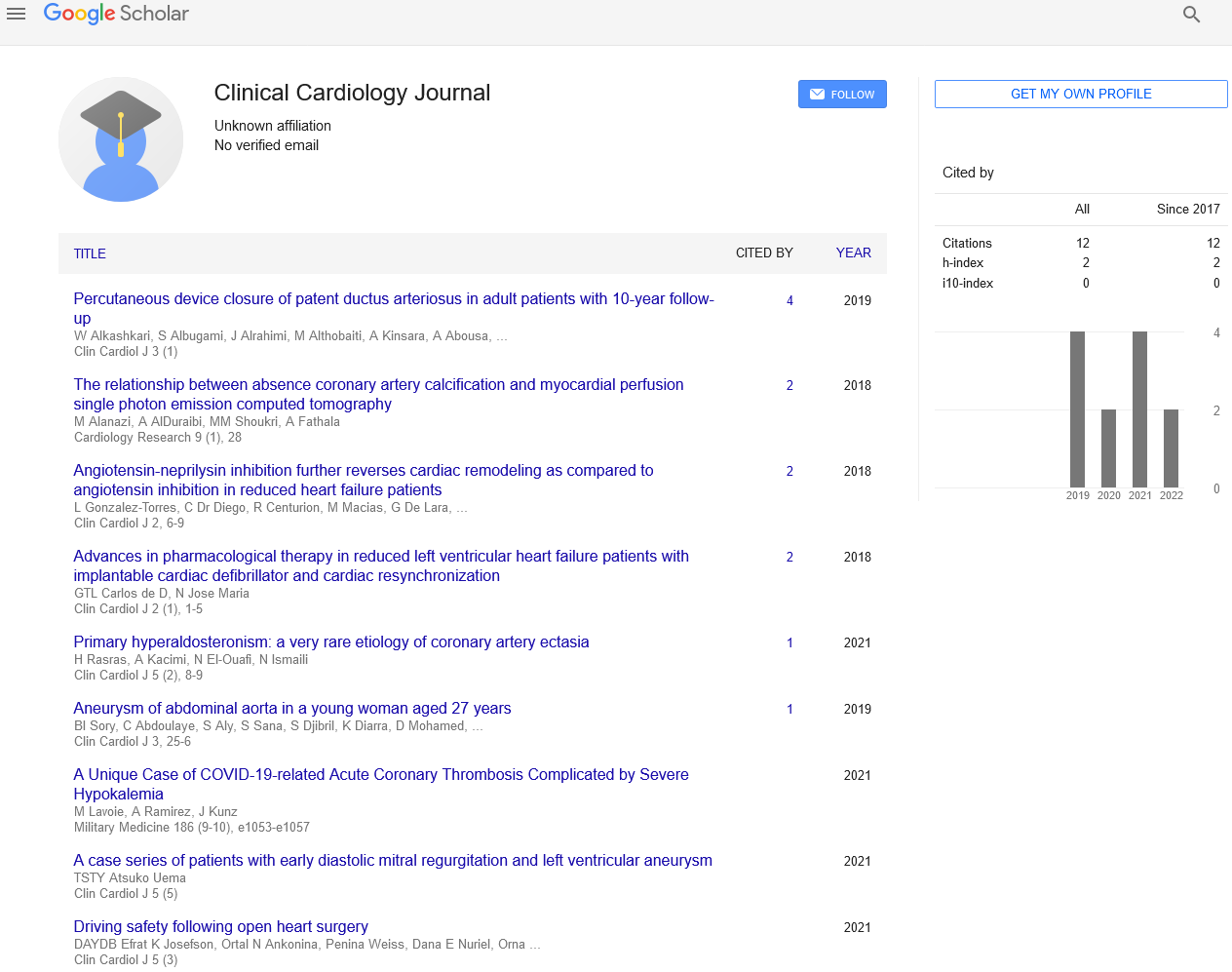Mmp-9 and the catheter ablation tactics choice
Received: 15-Jan-2019 Accepted Date: Feb 27, 2019; Published: 05-Mar-2019
Citation: Goriachyi OV, Gozhenko AI. Mmp-9 and the catheter ablation tactics choice. Clin Cardiol J 2019;3(1):9-15
This open-access article is distributed under the terms of the Creative Commons Attribution Non-Commercial License (CC BY-NC) (http://creativecommons.org/licenses/by-nc/4.0/), which permits reuse, distribution and reproduction of the article, provided that the original work is properly cited and the reuse is restricted to noncommercial purposes. For commercial reuse, contact reprints@pulsus.com
Abstract
Objectives: The purpose of this study was to determine the relationship between matrix metalloproteinase 9 and atrial fibrillation recurrence after catheter ablation.
Background: Matrix metalloproteinase – 9 (MMP-9) is involved in extracellular matrix remodeling which is a marker of extracellular collagen degradation.
Methods: An enzyme-linked immunosorbent assay prior to a radiofrequency catheter ablation (RFA) procedure was used for measuring the serum level of MMP-9 in 210 patients: 80 patients without history of atrial fibrillation (AF) and 80 patients with idiopathic AF (paroxysmal AF – 30, persistent AF – 32, long-standing AF – 35 and permanent AF – 33). Their relationship with intraoperative efficacy and recurrence of AF was evaluated throughout the entire observation period.
Results: The observation period was 22.2 ± 7.9 months. MMP-9 level was higher in the groups of patients with AF than in the control group: 170.5 ± 24.2, 202.7±28.4, 230.8 ± 21.1 and 252.6 ± 24.5 ng/ml for paroxysmal, persistent, long-standing and permanent forms of AF. In the control group, MMP-9 level was 75.9 ± 14.6 ng/ml. MMP-9 level increased with the progression of AF (p <0.05). A multifactor analysis showed that MMP-9 level, history of atrial fibrillation and left atrial volume were independent predictors of sinus rhythm recovery and recurrence of AF.
Conclusion: An increase in MMP-9 level in patients with AF has been shown. An increase in MMP-9 levels was observed as AF progressed. MMP-9 is an independent predictor of arrhythmia recurrence after RFA.





